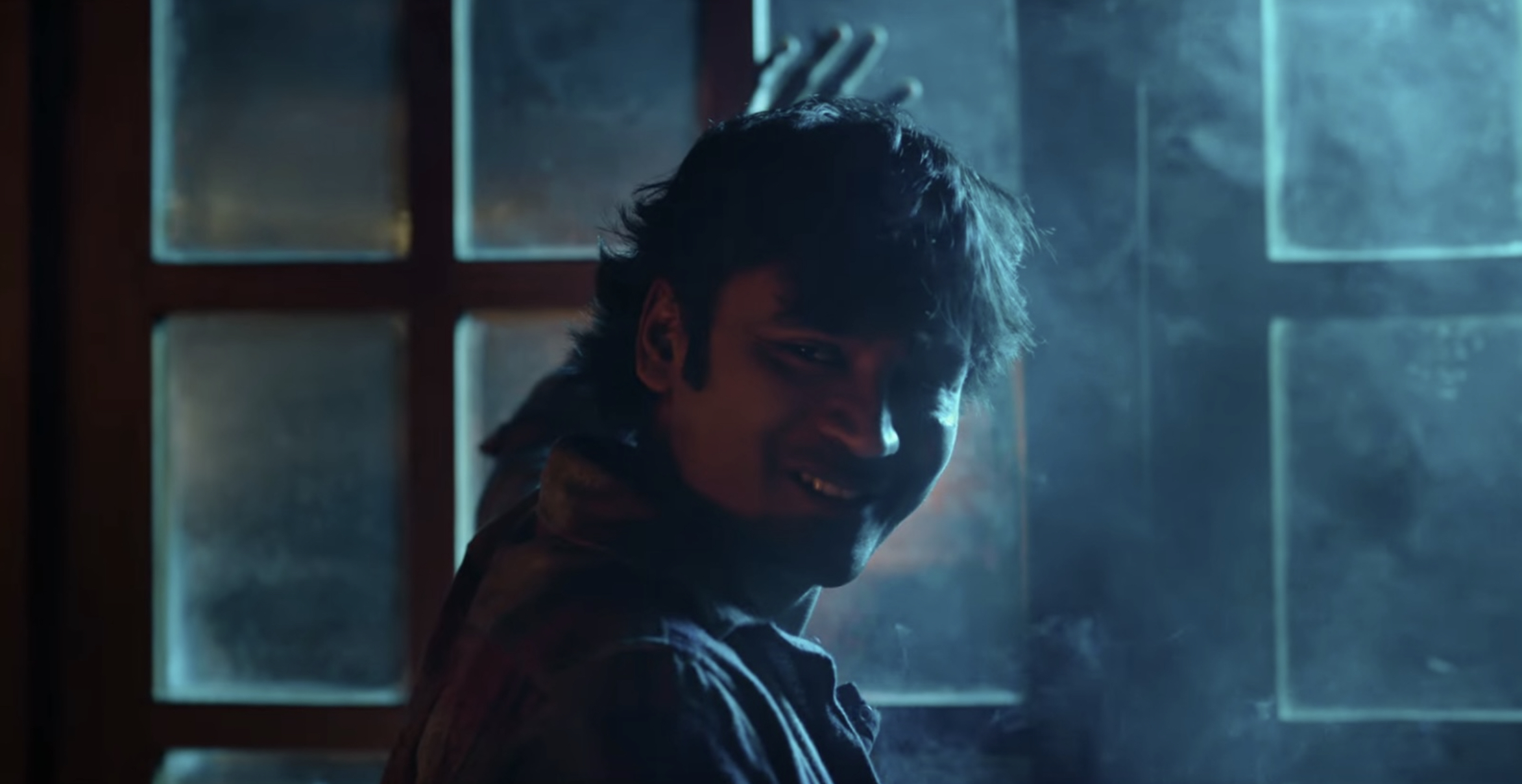Less than a month after watching a film about an immoral set of twins in ‘Cobra’, Selvaraghavan’s ‘Naane Varuvean’ is released. Thankfully, this film is much better.
‘Nenjam Marapathillai’ was released last year having been in production hell for four years, and it was a return to form for the director. Following the tepid reception and box office failure of 2013’s ‘Irandam Ulagam’, Selvaraghavan floundered for a while. His next directorial feature was ‘NGK’, which despite having all the usual Selvaraghavan flourishes, did not quite live up to expectations. Selvaraghavan teams up with his brother Dhanush once again (having last worked together in 2011’s ‘Mayakkam Enna’) and they are joined by composer Yuvan Shankar Raja. The trio last collaborated on Selvaraghavan’s 2006 magnum opus ‘Pudhupettai’.
‘Naane Varuvean’ follows twins Kathir and Prabhu, both played by Kollywood’s golden child Dhanush, who, following a traumatic incident in their childhood, are separated. The film tracks them as they unexpectedly enter each other’s lives again in adulthood. The two halves of the film vary in tone, with the first being structured like a horror and the second transforming into a psychological thriller. The Tamil industry has attempted horror often, but has never got it right. For the first time whilst watching a Tamil film, I clutched my armrest in anticipatory fear during the first half.
What makes Selvaraghavan a great director is his controlled chaos - or is it chaotic control? - but this is mostly missing in ‘NV’. The film lacks a lot of his signature touches: the histrionic acting from all his previous films has mostly disappeared (except for one moment, and what a moment it was). The director has never been shy of filling his screen with blocks of stark green and red lighting, which is still present, but dialled down massively. It can be argued that he has started to refine his presentation, but l the raw, edgy aesthetics of his usual endeavours are lost. What is gained instead is clean and crisp cinematography from Om Prakash. The visuals are the most conventionally shot of his work yet, but where is the unhinged madman who shot the trippy visuals for ‘Pul Pesum Poo Pesum’ and ‘En Pondatti Ooruku Poita’? The film is peppered with creative shots and angles, however one which sticks out is the passage of time showcased through a father and daughter trampolining during a song montage.
One potential explanation is that this is the first film Selvaraghavan has directed where the story is not his own. Dhanush has writing credits for the film, causing slight trepidation following his lukewarm writer/director debut with ‘Power Paandi’. The plot is thinly layered: we have some play with the concept of duality. The motif of the forest is great - a place where the darkness of the subconscious runs amok.
Yuvan Shankar Raja’s music is fantastic, with the two lead singles being perhaps the highlights of the film. Selvaraghavan seems to recapture the greatness of his previous work in the visuals for ‘Veera Soora’ and ‘Rendu Raaja’.
‘NV’ is yet another opportunity for Dhanush to display his acting prowess, but both characters felt underwritten. Yogi Babu’s character felt superfluous, bringing his unique brand of humour to a film which did not need it (this is even mentioned in the film, but there was no justification following it). Prabhu plays a psychiatrist well, but his office seemed more suited to a psychic’s (Prabhu reveals he is also a part-time psychic later on, but that still does not explain his strange office).
The film also feels unfinished. ‘Vendhu Thanindhadhu Kaadu’ was also the first instalment of a two-part film, but also could stand as a work of art in its own right. ‘NV’ leans too heavily on the promise of finality in the second part.
Overall, ‘Naane Varuvean’ is not Selvaraghavan’s strongest output, but even his weakest work is much more interesting than the majority of Tamil cinema. If you enjoy ‘NV’, I would recommend revisiting the classic ‘Aalavandhaan’, a film dealing with a very similar plot and themes but treated with much more thought.
Krishna’s rating: 3 stars
We need your support
Sri Lanka is one of the most dangerous places in the world to be a journalist. Tamil journalists are particularly at threat, with at least 41 media workers known to have been killed by the Sri Lankan state or its paramilitaries during and after the armed conflict.
Despite the risks, our team on the ground remain committed to providing detailed and accurate reporting of developments in the Tamil homeland, across the island and around the world, as well as providing expert analysis and insight from the Tamil point of view
We need your support in keeping our journalism going. Support our work today.
For more ways to donate visit https://donate.tamilguardian.com.


